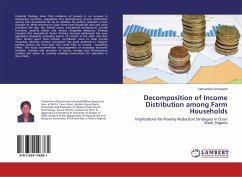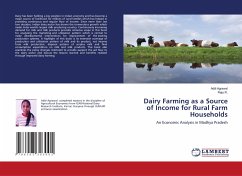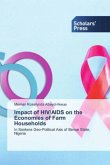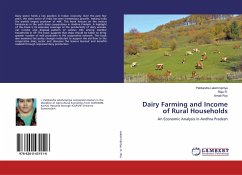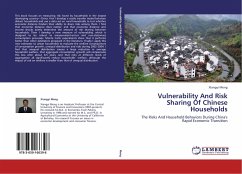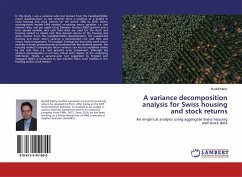Empirical findings show that incidence of poverty is on increase in developing countries, suggesting that decomposing income distribution among farm households can be an antidote for poverty reduction is best thought of. While drawing on Osun State Farm household data and using indicators like age, sex, marital status, educational background, income functions, poverty indices and various inequality measures; findings revealed that Agricultural Sector (Primary Income) epitomised the most significant inequality increasing source of income in the state and that other factors apart from income, contributes more to total income inequality. Likewise, primary occupation has great potential to mitigate poverty among the rural poor and could have an income - equalizing effect. The study recommended encouragement of secondary economic activities, training and provision of inputs, storage and infrastructure facilities and above all, creating enabling environment for education in Osun State.
Bitte wählen Sie Ihr Anliegen aus.
Rechnungen
Retourenschein anfordern
Bestellstatus
Storno

